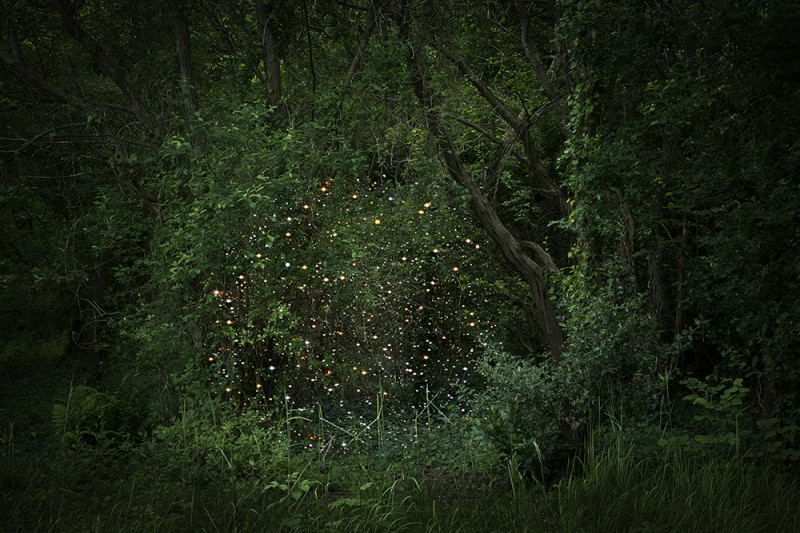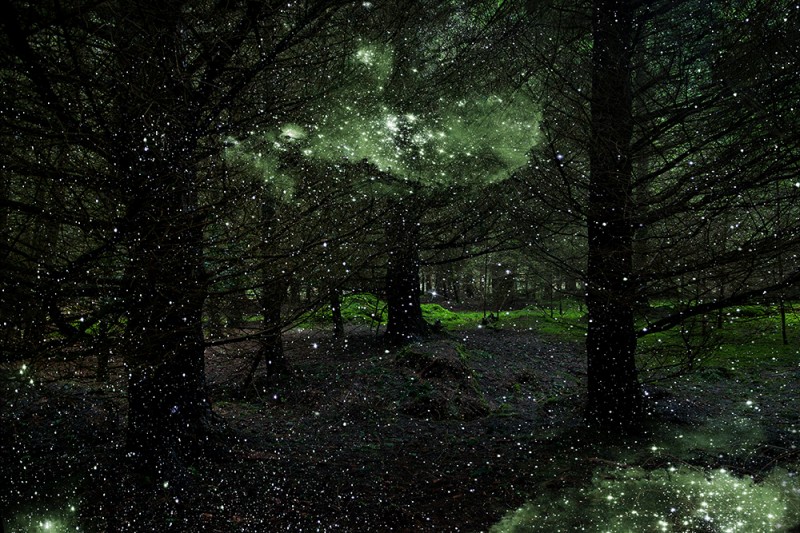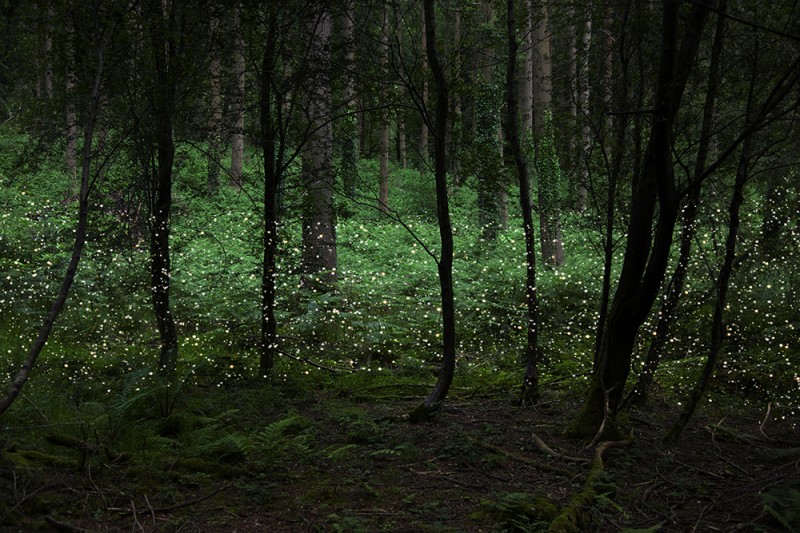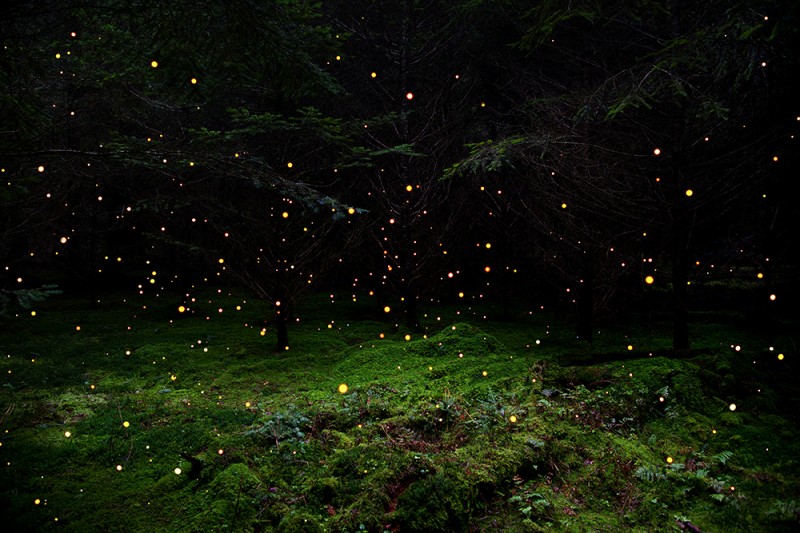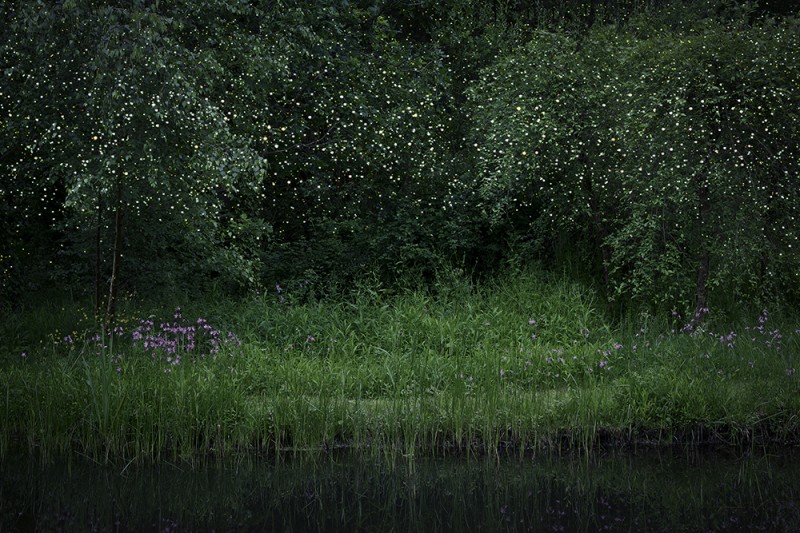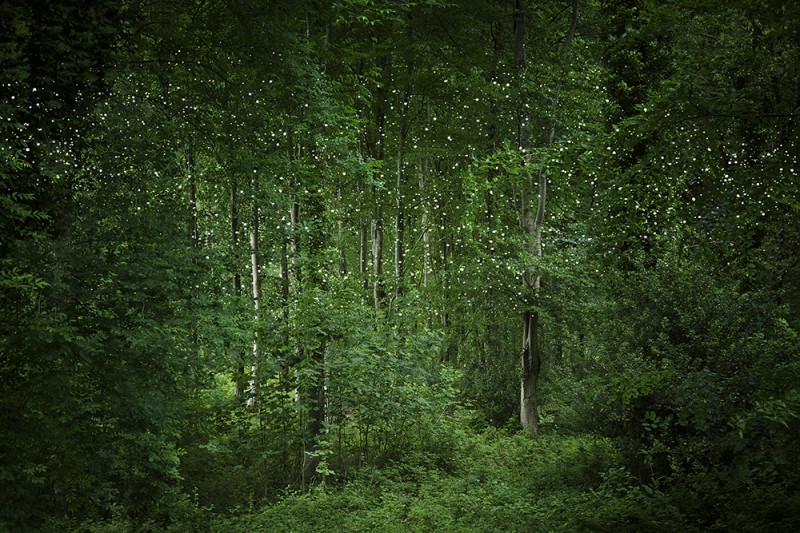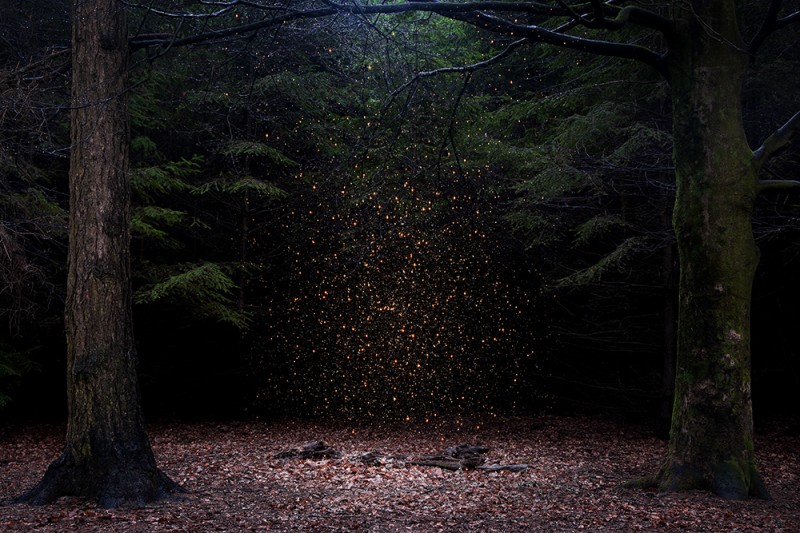Stars, 2014
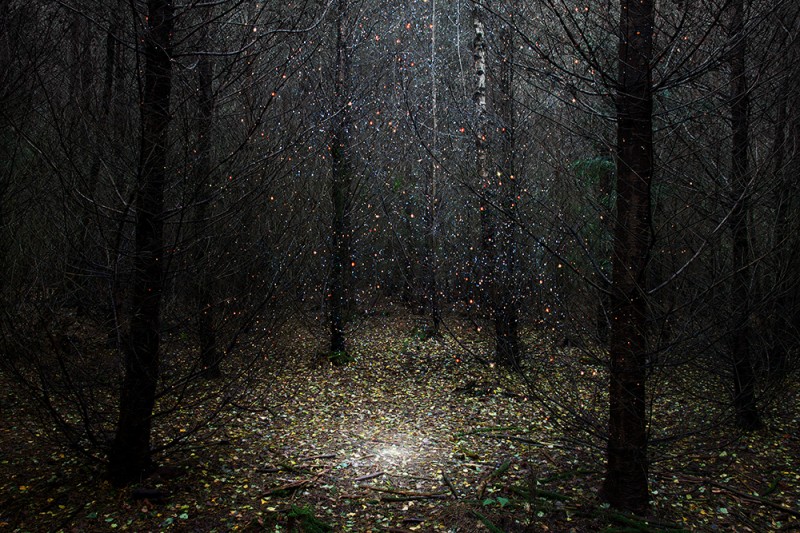
-
PhotographerEllie Davies
Stars, 2014. (Source Material Credit: STScI/Hubble & NASA). Stars, 2014 explores my desire to find some balance between a relationship with the wild places of my youth, and a pervasive sense of disconnectedness with the natural world. The Western landscape tradition embodies a pairing that James Elkins calls ‘the subject-object relationship’. Typified by the ‘scenic viewpoint’ or tourist panoramic overlook, we gaze, often through binoculars or telescopes, at wide vistas and dramatic seascapes, awed and overwhelmed. But this landscape experience often alienates the viewer from the scene and, just as the landscape itself becomes an object, a separation arises between them. Today the majority of people live in urban or semi-urban environments, experiencing the landscape from a distanced position. From this viewpoint the notion of the landscape in all its sensuous materiality, our being within it rather than outside it, seems beyond reach. Stars, 2014 addresses this distancing by drawing the viewer right into the heart of a forest which still holds mystery, and offers the potential for discovery and exploration. The series considers the fragility of our relationship with the natural world, and the temporal and finite nature of landscape as a human construct. Mature and ancient forest landscapes are interposed with images of the Milky Way, Omega Centauri, the Norma Galaxy and Embryonic stars in the Nebula NGC 346. Each image links forest landscapes with the intangible and unknown universe creating a juxtaposition that reflects my personal experiences of the forest; its physicality and tactility set against a profound and fundamental otherness, an alienation that separates us from a relationship with the natural world.
I have worked in UK forests since 2007, making images which explores the complex interrelationship between the landscape and the individual. Our understanding of landscape can be seen as a construction in which layers of meaning that reflect our own cultural preoccupations and anxieties obscure the reality of the land, veiling it, and transforming the natural world into an idealization. These altered landscapes are a reflection of my personal relationship with the forest, a meditation on universal themes relating to the psyche and they explore the concept of landscape as a social and culture.
